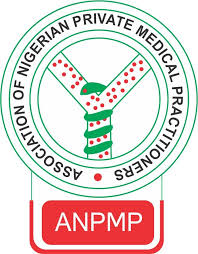The Association of Nigerian Private Medical Practitioners (ANPMP) has raised alarm over a staggering debt exceeding N200 billion, which it says the Federal Government owes its members for emergency treatments delivered over the past decade.
Dr. Kay Adesola, President of ANPMP, made this known during the association’s 47th International Conference and Annual General Meeting, held recently. He noted that the debt, which dates as far back as 2014, is a result of emergency medical services provided to patients across the country — services that were rendered in compliance with the National Health Act of 2014, which mandates all health facilities, public or private, to administer emergency care to patients regardless of their financial capacity at the time of need.
Dr. Adesola lamented that despite the law’s intent to safeguard lives and ensure swift medical attention in life-threatening situations, the Federal Government has failed to compensate private medical facilities that have been bearing the brunt of compliance.
The ANPMP president recalled that in 2018, the government established the National Emergency Medical Services and Ambulance System (NEMSAS), a fund under the Basic Healthcare Provision Fund, specifically designed to support hospitals in offsetting the costs of emergency treatments. He noted that a bill had also been passed mandating a portion of the basic healthcare fund be allocated to any hospital that treats emergency cases, provided they submit proof or notify a central monitoring body upon admission of such patients.
However, he expressed deep frustration that despite these measures being in place and the fund being appropriated yearly, private hospitals have not received any disbursement. He said that during a Senate committee session on health matters in February 2024, the association presented data showing that over N200 billion is owed to private healthcare providers nationwide for emergency services rendered in good faith.
Dr. Adesola further disclosed that shortly after this presentation, federal health officials questioned the legitimacy of the figures, claiming that such amounts were unverifiable. While the government admitted that NEMSAS had received N26.3 billion, he stated that even that amount has not been released to the private hospitals who desperately need it.
“I was representing our association at the technical committee responsible for emergency medical treatment,” he recounted. “But after our submission on February 20th, I was never invited back. Instead of addressing the matter, they pushed me out.”
He emphasized that private hospitals across Nigeria are usually the first point of call during emergencies, especially in remote or underserved areas, yet they are being sidelined by the same system they are supporting.
Dr. Adesola also pointed out that the financial distress facing private hospitals is not limited to unpaid government debts. The sector is contending with soaring operational costs, including skyrocketing electricity tariffs, rising prices of drugs and medical supplies, and burdensome taxes. These financial pressures, he said, are forcing many private hospitals to shut down operations, placing additional strain on an already overstretched healthcare system.
He criticized the stagnant tariff of the National Health Insurance Authority (NHIA), revealing that the current reimbursement rate stands at a meager N1,450 per patient per month — an amount he described as grossly insufficient to provide even basic care. According to him, the association is advocating for a more realistic rate of N10,000 per person per month to ensure quality healthcare delivery and sustainability of medical facilities.
As the nation grapples with growing healthcare needs, Dr. Adesola urged the government to engage in meaningful collaboration with the private health sector, which plays a vital role in providing accessible medical care to millions of Nigerians. He warned that failure to address these issues could lead to a full-blown healthcare crisis in the near future.
“The government must stop making empty promises. What we need now is a clear and actionable plan to rescue our healthcare system. Ignoring the private sector’s contributions is a disservice to the nation,” he concluded.
